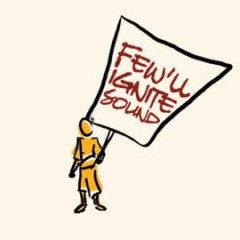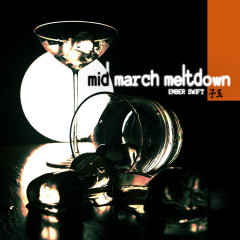Chosen Family
Please excuse my delayed posting this month. We’re on vacation in Canada and it’s so lovely here that I’ve been distracted. I’ve been a slacker and enjoying every second of it! 🙂
***********************************************************************************
When I found myself in a full-fledged relationship with Guo Jian, I realized quickly that I was also in a relationship with his parents. I think I partially fell in love with them while falling in love with him, to be honest. And coming from the queer community and having been partnered with women all the time, this was new to me.
My parents were (and are) the rare example of accepting and welcoming parents regardless of my non-hetero identity. They often invited my friends to come visit with or without me, especially during holiday times. Worried that anyone in my community might not have a place to go home to for Christmas or Easter or Thanksgiving, they’d ask me with concerned eyes if there would be anyone else to set a place for at the dinner table besides my ex-partner(s) and me. There often were. The reminders of their open arms warmed my heart then just like remembering it does now.
Well, I wish I could say that my ex-partner’s parents were like this. She was from a strict, religious home. While her parents were always friendly and kind to my face, there was a strained distance; I was pointedly not considered one of the family. There were no joint invitations to special events, no holiday cards addressed to us both, no warm fuzzies as though I had in-laws.
I hadn’t realized after nearly a decade of this impartial treatment how starved I was for love and acceptance from a partner’s parents. Extended family.
I found it in China.
And even more remarkable considering how ethnocentric and xenophobic China is. I am a foreign woman who speaks a different language and has a mind of her own regarding culture and religion and politics, yet it was in China that I found the inclusion that I had been craving. In fact, they treated me like a daughter-in-law long before we were ever married.
If I can generalize for a moment, I find that the older generation in China is not very globally aware. That makes sense considering they had limited access to information about the rest of the world during the Cultural Revolution, not to mention the fact that so few have university level education.
For instance, I have to regularly remind my in-laws that foreigners are not just one bulk group (or worse, that there aren’t just “white” and “black” foreigners) but that there are many, many other countries and cultures in the world; everyone is unique. So their knowledge of Westerners starts at the television ads and stops with me correcting what they see on the television for a broader reality.
They’ve come a long way regarding some assumptions and misunderstandings, but the beauty is that they’re willing to learn.
And they seemed to really love me. When you’re so far from home in a strange land, I think it’s safe to say that anyone of any age can use a bit of mothering. I enjoyed a sense of feeling cared for and protected. I was welcomed into a sense of family.
I have never directly come out to my in-laws. This piece of absentee knowledge used to hang dark and cloudy before me in my interactions with them, like a lie about to ensnare us all. I spoke to Guo Jian about it early on and he told me, quite directly, that it made no sense to come out to his parents who didn’t even know the word for “homosexual” in the Chinese language, let alone “queer” (a new word in the lexicon). Coming out, he said, would be a very confusing conversation for them, especially since I’ve clearly chosen to be with someone of the opposite sex. What’s more, he said, “Why does it matter so much? Just get to know them as things are now.”
I really struggled with answering this. After he asked it this way, I felt the queer side of my identity was somehow being nullified by my choice to be with him. Worse yet, I wondered if I was somehow absorbing a type of homophobia by not disclosing, like I was afraid they wouldn’t like me anymore or would judge me. I also wondered if coming out was selfish because it would make me feel better but would leave them with many questions that weren’t relevant to the now. And finally, I wondered if I wasn’t actively letting my past slip away by not coming out, and thus, not honouring my full identity, as though it were a memory and not a present reality, (which it is and always will be.)
Guo Jian’s response? “You think too much. 你想得太多!”
Maybe. Maybe he was right.
I decided that if I had any cause to reference my ex-partners that I would use a gender neutral term (as I always did anyway—see this blog) and to just slowly introduce my life to them as I went along. For instance, I have several lesbian couple friends with children and I have explained their worlds very matter-of-factly.
“But where’s her husband? 她的丈夫呢?” my mother-in-law asked me about my friend in Toronto who has a one year old son with her female partner. “Oh, there are two moms in that household. Isn’t their son lucky? 这个家庭有两个妈妈。她们的儿子太幸运!” and then I went on to explain that each mom speaks a different language just like we do and to describe what they did for a living, etc. I normalized their sexual identities in the same way that I normalized their cultural and professional ones. I was just recounting their story and presenting it for what it is: another normal family, just different as all families are.
“I’ve heard of this before 我听说过这个事情,” she said. “Interesting 有意思.” Then she seemed not to give it another thought.
It’s a start.
I’ve also come to acknowledge that my past is my own. I’m not ashamed of that past (or else why would I keep this blog!) but I also don’t need it hang it on display for everyone to read, like a CV trailing me as I walk forward. The habit of doing that might have come from my life as a musician in the public sphere, but it’s not appropriate in my everyday, private life. We are who we are—a culmination of who we have been up until this moment, but this moment is all that matters.
I will always be honest if I am asked directly or if my in-laws ever reference a man in my past rather than a woman, but they have never done that. They, in fact, never refer to me as having had a past whatsoever. After all, when they met me that was their beginning with me. My past is not relevant to them.
(Like I said in this blog, I think that might be the Chinese way.)
I’m at peace with these things now.
In Chinese culture, Guo Jian’s parents aren’t referred to as “his” parents; they’re “our” parents. I was told quickly to call them “mama and baba 妈妈 爸爸” or “mom and dad.” To not do so caused a great kerfuffle of awkwardness, especially when I said something like, “Your mom is on the phone 你的妈在打点话了” and she overheard. Linguistically, it creates a distancing that they found very uncomfortable. They nudged me out of the (translated) English language habit quickly by joking with me and repeating it back to me, especially Guo Jian.
“Whose parents are on the phone? 谁的父母在打点话?” he’d ask. “Yours 你的,” I’d say, not thinking. “Really? 是吗?” with his eyes twinkling, “Who’s parents? 谁的?Only mine? 只是我的吗?” and then I’d correct myself quickly with, “Our parents, oops! 我们的父母,不好意思!” and he’d laugh and so would they, especially when I followed that up with another very non-Chinese thing and apologized flamboyantly.
Nowadays, you can hear me calling my mother-in-law from across the apartment with an accented “MA?! 妈?” in their provincial dialect, just like my partner, Guo Jian, who I learned to imitate. They laughed when I first said it that way—a foreigner speaking the Shandong dialect!—but the beam of responsiveness made the transition so easy for me. Who doesn’t want to be beamed at?
I guess it goes both ways. Now they have a daughter! It pleases them.
When Guo Jian came to Canada after our wedding and started calling my parents “mom and dad,” my parents also beamed. My dad said, “Who ever thought I’d have a son!”
I had to get him out of the habit of pronouncing “dad” as “dead,” leading my dad to put his hand over his chest and pretend to fake faint, but then again, that was all part of the fun as we transition into building this family.
In the queer community, we often speak of “chosen family.” It’s a term that brings our friends into our family circle and fills in the gaps created by homophobia’s heavy thud throughout our lives.
I think of Guo Jian’s parents as my chosen family too. I chose to marry him and so, by extension, I chose them too.
Can’t you just hear that Sister Sledge song now? Where’s the dance floor?








